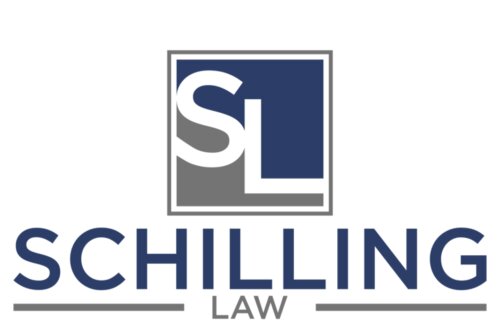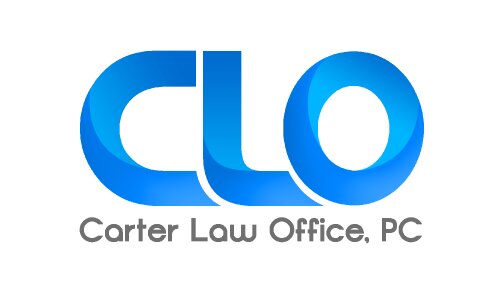Best Land Use & Zoning Lawyers in Kansas
Share your needs with us, get contacted by law firms.
Free. Takes 2 min.
Free Guide to Hiring a Real Estate Lawyer
Or refine your search by selecting a city:
List of the best lawyers in Kansas, United States
About Land Use & Zoning Law in Kansas, United States
Land Use & Zoning laws in Kansas regulate how land can be used and developed within the state. These laws help local governments manage growth, protect natural resources, and ensure compatible uses of nearby land. Zoning ordinances typically divide cities and counties into zones such as residential, commercial, industrial, and agricultural, each with its own set of policies and restrictions. In Kansas, land use and zoning are generally enforced at the city or county level, though certain state and federal rules apply. These regulations seek to balance development pressures with community goals, environmental protection, and public health and safety.
Why You May Need a Lawyer
Legal assistance is often essential when navigating land use and zoning in Kansas. You may need a lawyer if you encounter any of the following situations:
- Seeking to rezone a property or obtain a special use permit
- Facing a zoning code violation or enforcement action
- Contesting a land use decision made by a local zoning board or city council
- Dealing with neighbor disputes related to land use, property boundaries, or easements
- Planning a new development or redevelopment project
- Challenging or defending against eminent domain actions
- Understanding regulations about home businesses, accessory structures, or subdivisions
- Representing interests in public hearings on proposed land use changes
- Reviewing restrictive covenants, deed restrictions, or homeowner association rules
An experienced lawyer can help explain your rights, interpret zoning codes, and advocate for your interests before regulatory boards and in court.
Local Laws Overview
In Kansas, zoning and land use laws vary widely among cities, towns, and counties. Most communities have a comprehensive plan that outlines future growth, development priorities, and conservation areas. Local governments adopt zoning ordinances and maps that specify what types of land uses are permitted in different zones.
Key aspects of local land use and zoning laws in Kansas include:
- Zoning Classifications: Cities and counties use different zones such as residential, commercial, industrial, agricultural, and mixed use, each with their own restrictions.
- Permitting: Projects often require permits such as building permits, special use permits, or conditional use permits depending on the intended use and zoning district.
- Nonconforming Uses: Properties that were legally established but do not conform to later zoning changes may be grandfathered in under specific rules.
- Eminent Domain: Governments have limited authority to acquire private property for public use, subject to due process and just compensation.
- Variance Process: Property owners may apply for variances if strict application of zoning regulations creates unnecessary hardship.
- Public Participation: Most major zoning changes involve public notice and hearings, giving neighboring property owners a chance to speak for or against proposed changes.
Frequently Asked Questions
What is zoning?
Zoning is a local government’s tool for regulating land use by dividing areas into zones that allow only specific types of development or activities, such as residential, commercial, or industrial.
How can I find my property’s zoning classification?
You can contact your local city or county planning and zoning department or check their official website for zoning maps and classifications that apply to your property.
Can I challenge a zoning decision or ordinance?
Yes, if you are affected by a zoning decision or ordinance, you often have the right to appeal to a zoning board of adjustment or to file a legal challenge in district court.
Are there statewide land use regulations in Kansas?
Most land use and zoning decisions happen at the local level. However, certain state and federal regulations also apply, particularly for environmental protection, floodplains, and historic properties.
What is a variance, and how do I get one?
A variance is a specific exception to zoning rules based on unique circumstances. You must apply through your local zoning board, explain the hardship, and sometimes attend a public hearing.
Do I need a permit to build a fence or addition on my property?
Usually, yes. Many cities and counties require permits for fences, additions, sheds, or other structures to ensure compliance with zoning and building codes.
Can my property be rezoned?
Property owners can apply to have their property rezoned. The process typically involves an application, review by planning staff, public hearings, and approval from the local governing body.
What is a nonconforming use?
A nonconforming use is a property use that was legal under previous zoning laws but does not comply with new regulations. These uses may continue, but changes or expansions are often restricted.
What can I do if I receive a zoning violation notice?
First, review the notice to understand the alleged violation. Then, consult with an attorney or local zoning official to discuss your options, which may include correcting the issue, seeking a variance, or appealing the notice.
How do I participate in a zoning hearing or public meeting?
Most local governments post agendas and public notices for zoning hearings. You can attend in person, submit written comments, or sometimes speak during public comment periods.
Additional Resources
If you need further information or assistance, these organizations and agencies may be helpful:
- Kansas Association of Counties
- Kansas Department of Agriculture - Division of Conservation
- Local city or county planning and zoning departments
- Kansas Bar Association
- Kansas Judicial Branch - District Courts
- Legal aid organizations serving Kansas
- Local librarian or law library for research assistance
Next Steps
If you believe you need legal help with a land use or zoning issue in Kansas, take these steps:
- Gather relevant documents, such as property deeds, permits, maps, or violation notices
- Contact your local planning and zoning office for basic information and guidance
- Consult with an attorney who specializes in land use and zoning law
- Prepare a summary of your situation, noting key dates and communications
- Attend public meetings or hearings as needed to protect your interests
- If cost is a concern, seek assistance from legal aid organizations or inquire about pro bono services
An experienced Kansas land use and zoning attorney can help you navigate local procedures, protect your rights, and find the best path forward for your property-related goals.
Lawzana helps you find the best lawyers and law firms in Kansas through a curated and pre-screened list of qualified legal professionals. Our platform offers rankings and detailed profiles of attorneys and law firms, allowing you to compare based on practice areas, including Land Use & Zoning, experience, and client feedback.
Each profile includes a description of the firm's areas of practice, client reviews, team members and partners, year of establishment, spoken languages, office locations, contact information, social media presence, and any published articles or resources. Most firms on our platform speak English and are experienced in both local and international legal matters.
Get a quote from top-rated law firms in Kansas, United States — quickly, securely, and without unnecessary hassle.
Disclaimer:
The information provided on this page is for general informational purposes only and does not constitute legal advice. While we strive to ensure the accuracy and relevance of the content, legal information may change over time, and interpretations of the law can vary. You should always consult with a qualified legal professional for advice specific to your situation.
We disclaim all liability for actions taken or not taken based on the content of this page. If you believe any information is incorrect or outdated, please contact us, and we will review and update it where appropriate.
Browse land use & zoning law firms by city in Kansas
Refine your search by selecting a city.














